Understanding equations Worksheets for Ages 3-8
8 filtered results
-
From - To
Welcome to our "Understanding Equations Worksheets" designed for children ages 3-8! These engaging worksheets help young learners develop foundational math skills while making learning fun. Our carefully crafted activities introduce basic concepts of equations through colorful illustrations and interactive exercises, fostering critical thinking and problem-solving abilities. Children will learn to recognize, create, and solve simple equations in a playful way, setting the stage for future math success. Each worksheet promotes hands-on learning and encourages creativity, ensuring students not only grasp the fundamentals but also enjoy the process. Dive into our collection to inspire your child's mathematical journey today!
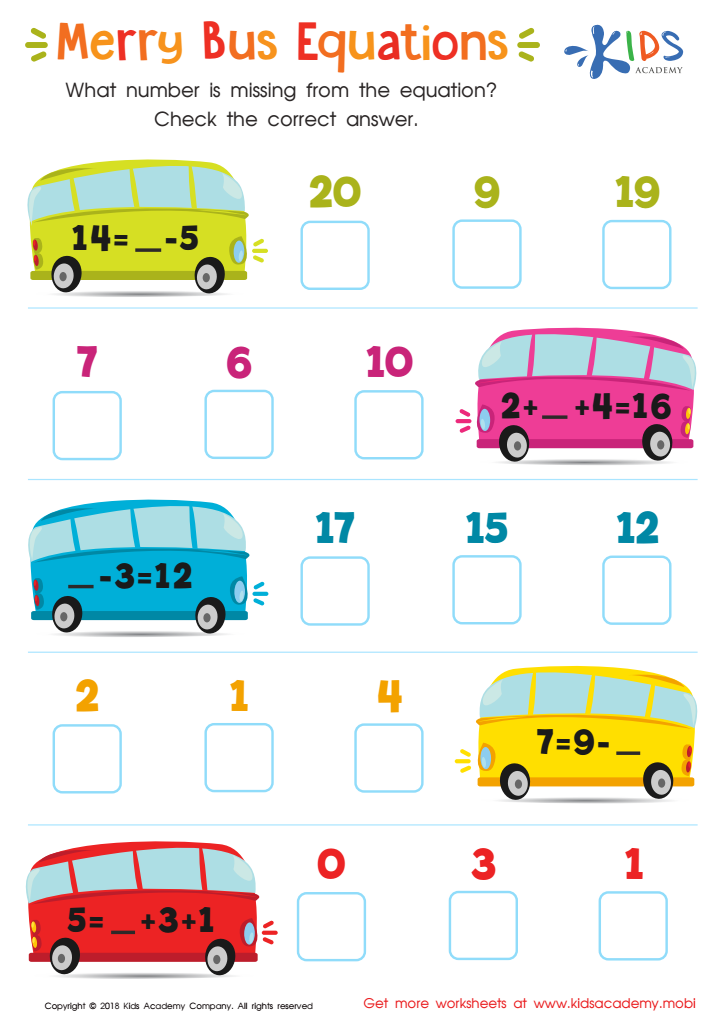

Merry Bus Equations Worksheet
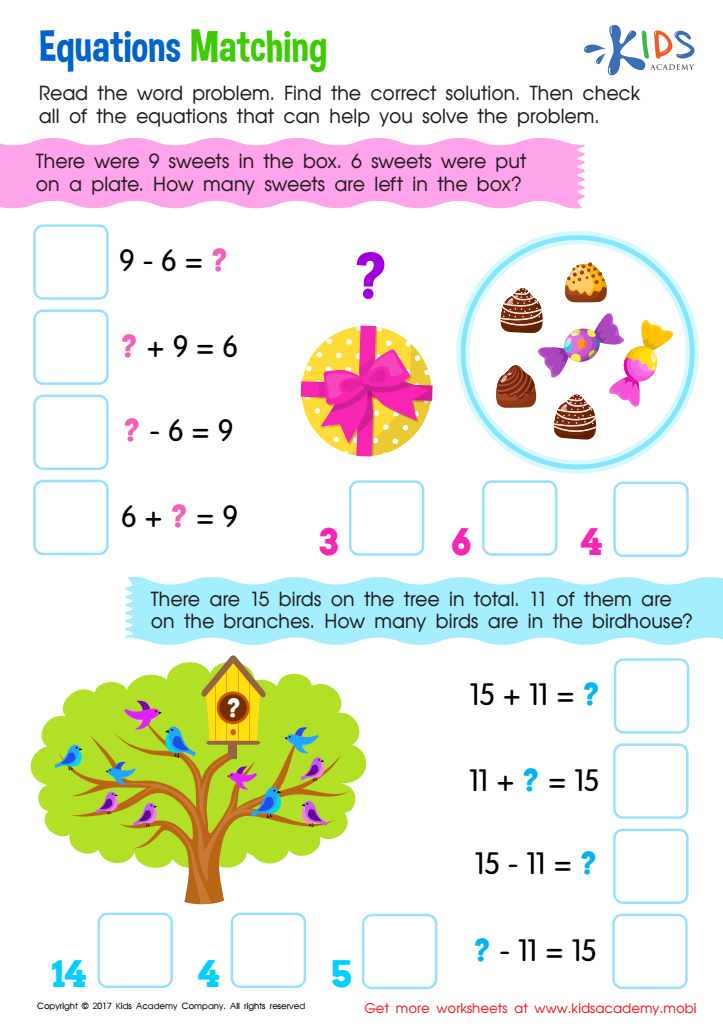

Equations Matching Word Problems Worksheet
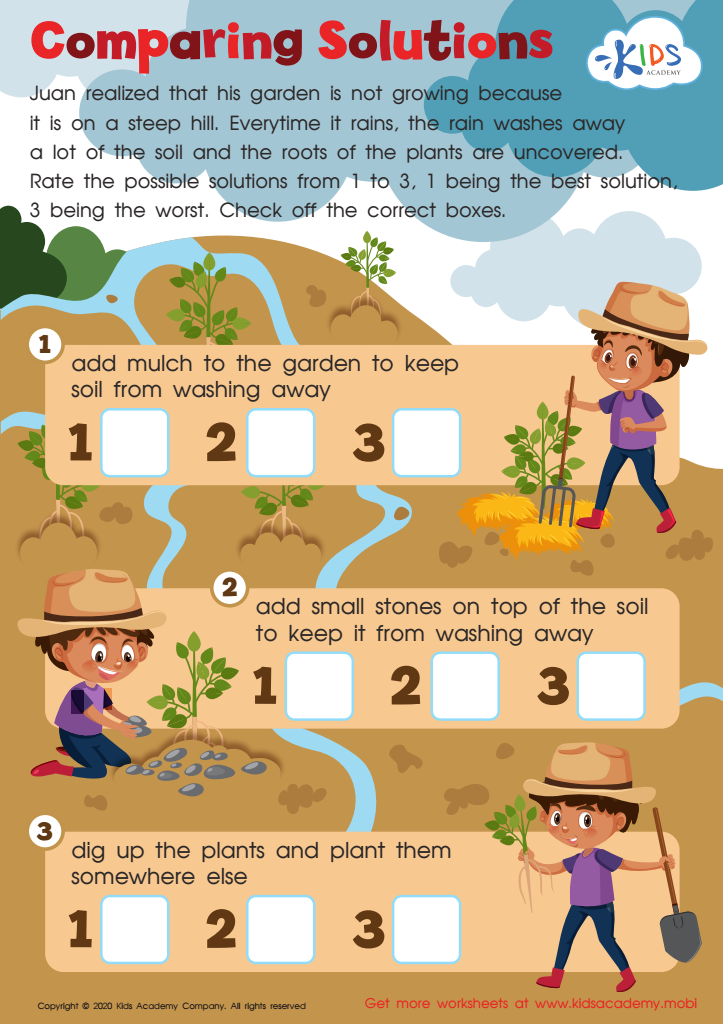

Comparing Solutions Worksheet
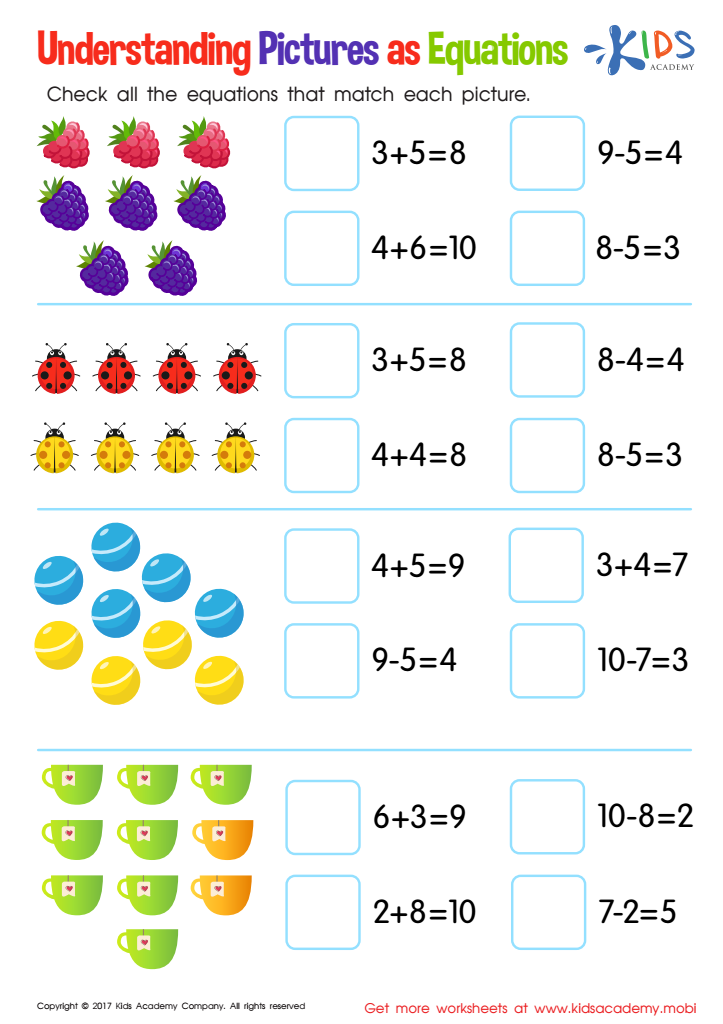

Understanding Pictures as Equations Worksheet
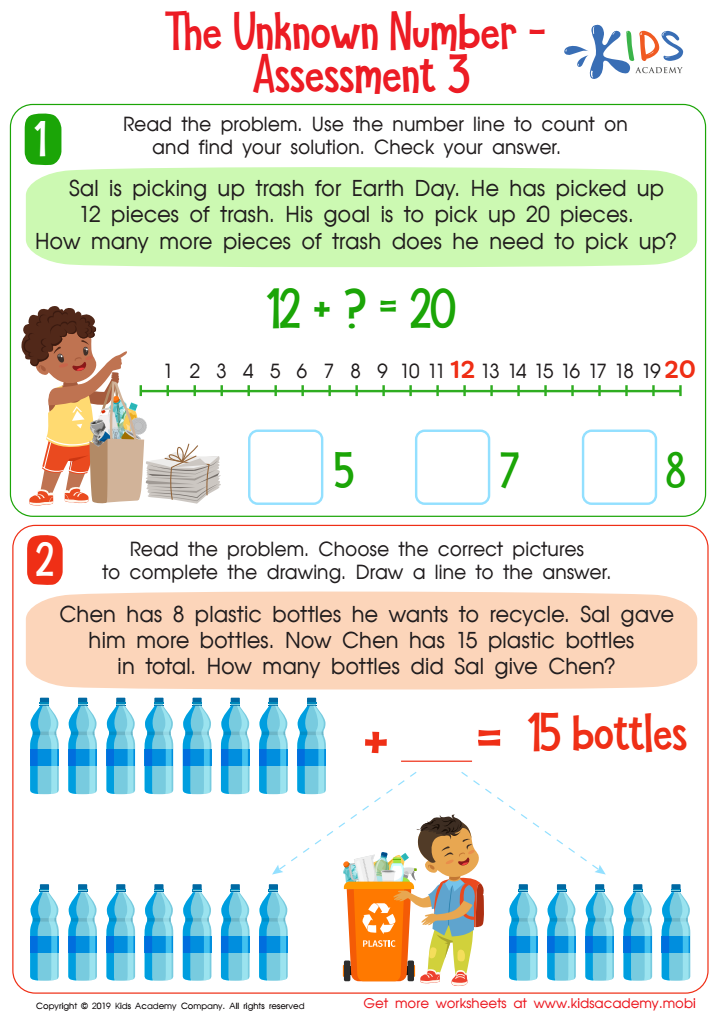

The Unknown Number - Assessment 3 Worksheet
Understanding equations is crucial for children aged 3-8 as it lays the groundwork for critical thinking and problem-solving skills. At this developmental stage, children are naturally curious and eager to make sense of the world around them. Introducing them to equations enhances their ability to recognize patterns, organize information, and develop logical reasoning.
Teachers and parents who prioritize understanding equations help children build a positive attitude towards math, fostering confidence in their abilities. This foundational knowledge goes beyond arithmetic; it nurtures skills like communication, collaboration, and resilience in the face of challenges. Engaging with equations encourages children to explore relationships between numbers, promoting their ability to visualize concepts and solution strategies.
Moreover, a strong grasp of mathematical concepts during these formative years is directly linked to future academic success. As students transition into higher grades, they'll encounter more complex mathematical applications. By investing time in understanding equations early on, educators and families equip children with tools that benefit them throughout their educational journey.
Ultimately, cultivating a love for math and confidence in handling equations during these early years can shape a child's lifelong relationship with learning and provide them with the skills they need to succeed in an increasingly data-driven world.
 Assign to My Students
Assign to My Students










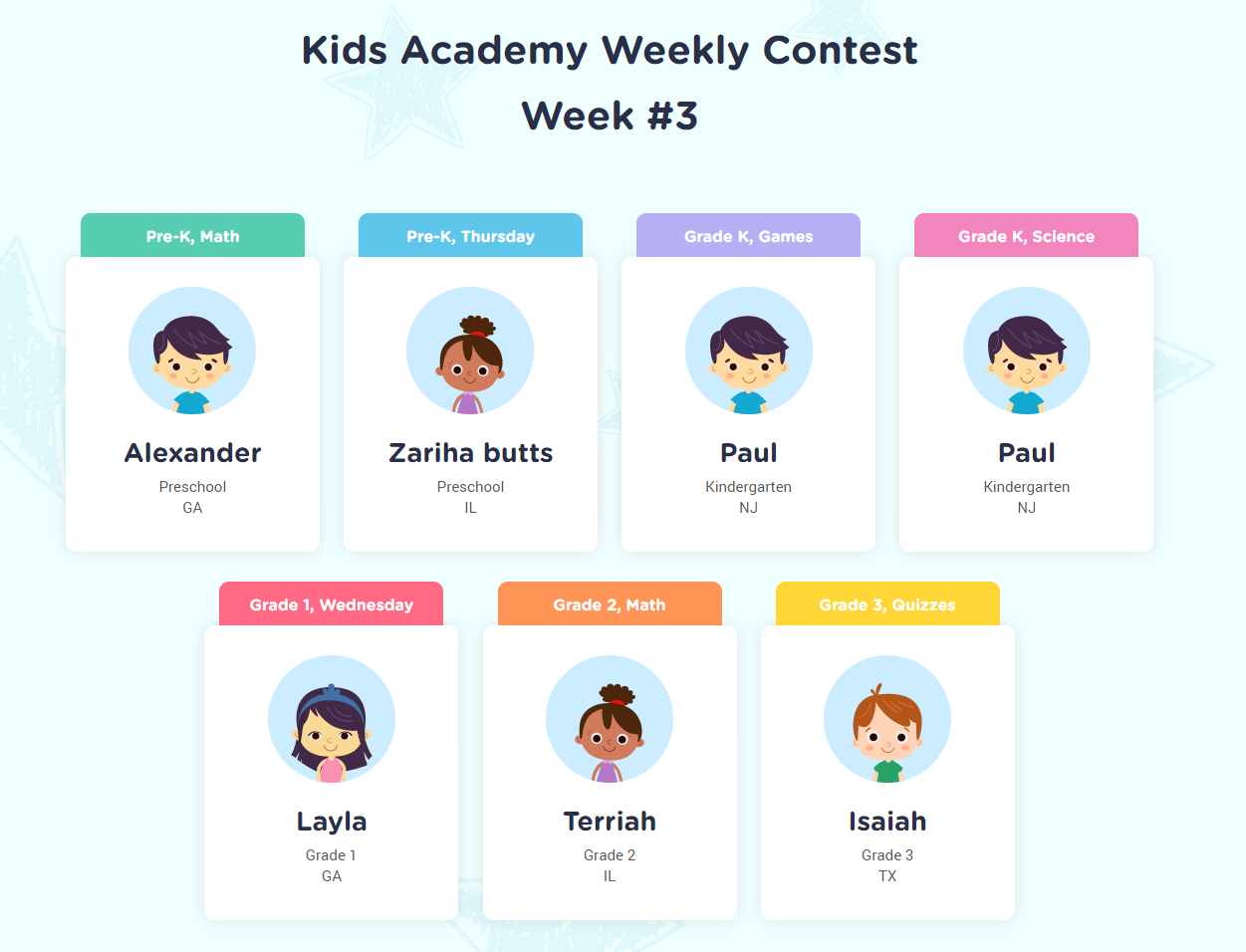
.jpg)











